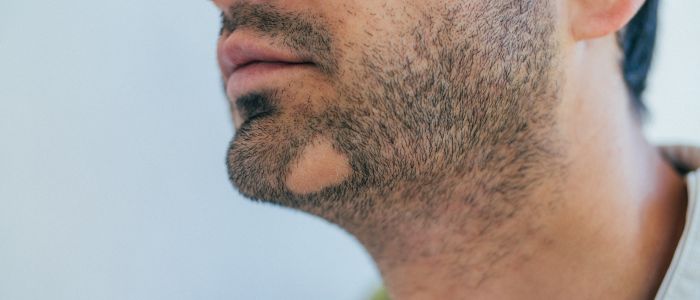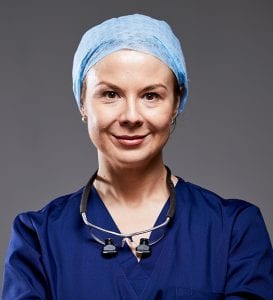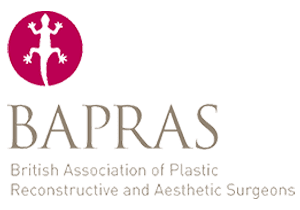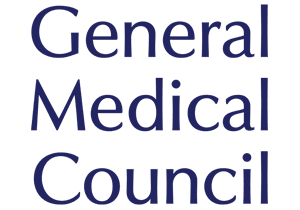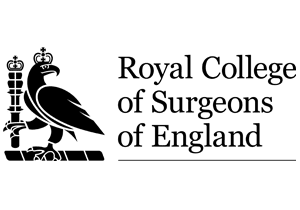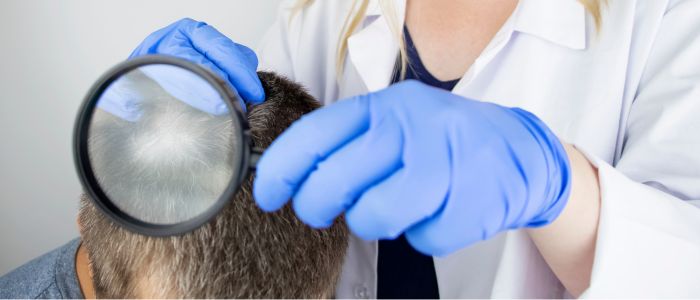
Table of Contents
- Solutions for Alopecia Areata
- What is Alopecia Areata?
- Types of Alopecia Areata
- What are the Causes of Alopecia Areata?
- Symptoms and Diagnosis
- Treatment Options
- Topical Treatments
- Intralesional Treatments
- Systemic Treatments
- Light Therapy
- Alternative Therapies
- Lifestyle Changes and Home Remedies
- Research and Future Treatments
- When to See a Dermatologist
- FAQs about Causes and Treatment for Alopecia Areata
- Further Reading about Procedures at Cheshire Cosmetic Surgery
Solutions for Alopecia Areata
Have you noticed patchy hair loss on your scalp or other parts of your body? You might be experiencing alopecia areata, an autoimmune condition that affects millions of people worldwide. As a dermatologist with plenty of experience in hair disorders, Dr Dalia can help you with various treatment options available for alopecia areata.
What is Alopecia Areata?
Alopecia areata is an autoimmune disorder that causes hair loss in patches. It occurs when your immune system mistakenly attacks your hair follicles, leading to sudden hair loss. This condition can affect people of all ages, genders, and ethnicities, although it often begins in childhood or early adulthood.
Types of Alopecia Areata
Before getting into the causes and treatments, you should know there are different types of alopecia areata:
- Patchy Alopecia Areata: The most common form, characterised by coin-sized patches of hair loss on the scalp or other areas of the body.
- Alopecia Totalis: Complete loss of hair on the scalp.
- Alopecia Universalis: Total loss of hair on the entire body, including eyebrows and eyelashes.
- Alopecia Barbae: Hair loss specifically in the beard area.
- Ophiasis Alopecia Areata: Hair loss in a band-like pattern around the sides and back of the head.
What are the Causes of Alopecia Areata?
While the exact cause of alopecia areata remains unknown, several factors are believed to contribute to its development:
- Genetics: If you have a family history of alopecia areata or other autoimmune disorders, you may be at a higher risk of developing the condition.
- Environmental Triggers: Stress, illness, or certain medications may trigger the onset of alopecia areata in genetically predisposed individuals.
- Immune System Dysfunction: Your immune system mistakenly attacks hair follicles, causing inflammation and hair loss.
- Hormonal Changes: Some research suggests that hormonal fluctuations may play a role in the development of this condition.
- Viral Infections: Certain viral infections have been associated with the onset of alopecia areata in some cases.
Symptoms and Diagnosis
The primary symptom is sudden hair loss in small, round patches. You may notice:
- Coin-sized bald spots on your scalp or other parts of your body
- Patches that may grow larger and join together
- Hair loss occurring in a short period
- Exclamation mark hairs (short, broken hairs that are narrower at the bottom)
- Changes in your fingernails, such as pitting or ridges
If you’re experiencing these symptoms, you can consult a dermatologist like Dr Dalia for a proper diagnosis. Dr Dalia will examine your scalp and may perform a scalp biopsy or blood tests to rule out other conditions and confirm the diagnosis.
Treatment Options
While there is no cure for alopecia areata, there are treatment options that can help manage the condition and promote hair regrowth. It’s important to note that treatment effectiveness can vary from person to person, and what works for one individual may not work for another. Here are some of the most common treatment options:
Topical Treatments
- Corticosteroids: These anti-inflammatory medications can be applied directly to the affected areas. They work by suppressing the immune response and reducing inflammation around the hair follicles. Topical corticosteroids are often the first option for treatment for mild to moderate cases.
- Minoxidil: This over-the-counter medication, available as a foam or liquid, can stimulate hair growth in some cases. It’s typically applied twice daily to the affected areas.
- Anthralin: This tar-like substance can help stimulate hair regrowth by creating mild irritation on the scalp. It’s usually applied for a short period and then washed off.
Intralesional Treatments
- Corticosteroid Injections: For more severe or persistent cases, Dr Dalia may recommend corticosteroid injections directly into the affected areas. These injections can be more effective than topical treatments and are usually administered every 4-6 weeks.
Systemic Treatments
- Oral Corticosteroids: In some cases, oral corticosteroids may be prescribed for short-term use to suppress the immune system and promote hair regrowth.
- Immunosuppressants: Medications such as methotrexate or cyclosporine may be used to suppress the immune system and reduce hair loss in severe cases.
- JAK Inhibitors: These newer medications, such as tofacitinib and ruxolitinib, have shown promising results in clinical trials. They work by blocking specific pathways in the immune system that contribute to hair loss.
Light Therapy
- Excimer Laser or PUVA Therapy: These light-based treatments can help stimulate hair regrowth in some cases. They work by modulating the immune response in the affected areas.
Alternative Therapies
- Scalp Micropigmentation: This cosmetic procedure involves tattooing pigment into the scalp to create the appearance of a fuller head of hair or to camouflage bald patches.
- Platelet-Rich Plasma (PRP) Therapy: This treatment involves injecting a concentrated solution of your own blood platelets into the affected areas to stimulate hair growth.
- Aromatherapy and Massage: Some patients find that certain essential oils and scalp massage techniques can help improve circulation and potentially promote hair growth.
Lifestyle Changes and Home Remedies
While lifestyle changes and home remedies alone may not cure it, they can complement medical treatments and support overall hair health:
- Balanced Diet: Ensure you’re getting adequate nutrients, particularly iron, zinc, biotin, and vitamins A, C, and D, which are essential for healthy hair growth.
- Stress Management: Practice stress-reduction techniques such as yoga, meditation, or deep breathing exercises, as stress can exacerbate the condition in some cases.
- Gentle Hair Care: Use mild, sulphate-free shampoos and avoid harsh hair treatments or excessive heat styling to prevent further damage to your hair.
- Scalp Care: Keep your scalp clean and moisturised to create a healthy environment for hair growth. Consider using natural oils like coconut or jojoba oil for scalp massage.
- Quit Smoking: If you smoke, consider quitting, as smoking has been linked to increased inflammation and may worsen autoimmune conditions.
- Limit Alcohol Consumption: Alcohol intake can lead to nutritional deficiencies that may affect hair health.
- Stay Hydrated: Drink plenty of water to keep your body, including your hair follicles, well-hydrated.
Research and Future Treatments
Alopecia areata research is ongoing, with scientists working to develop new and more effective treatments. Some promising areas of research include:
- JAK Inhibitors: Clinical trials are exploring the use of JAK inhibitors in both oral and topical forms for treating the condition.
- Stem Cell Therapy: Researchers are investigating the potential of stem cells to regenerate hair follicles and promote hair growth.
- Immunotherapy: New approaches to modulating the immune system may lead to more targeted treatments.
- Gene Therapy: As we learn more about the genetic factors contributing to this condition, gene therapy may become a possibility in the future.
- Combination Therapies: Studies are exploring the effectiveness of combining different treatments to achieve better results.
When to See a Dermatologist
If you’re experiencing sudden hair loss or notice patchy bald spots, it’s essential to consult a dermatologist like Dr Dalia promptly. Early diagnosis and treatment can help manage the condition more effectively and potentially prevent further hair loss. Additionally, if you’ve been diagnosed with this condition and are not seeing improvement with your current treatment, it may be time to discuss alternative options with Dr Dalia.
FAQs about Causes and Treatment for Alopecia Areata

Can alopecia areata affect children, and if so, how is it treated differently?
Yes, it can affect children of all ages. Treatment for children is often more conservative due to potential side effects of stronger medications. Topical treatments are usually the first line of defence, and in some cases, Dr Dalia may recommend a “watch and wait” approach, as children can experience spontaneous regrowth more frequently than adults.
Is there a connection between alopecia areata and other autoimmune disorders?
Yes, people with this condition have a higher risk of developing other autoimmune conditions. Some of the most common associated disorders include thyroid diseases (such as Hashimoto’s thyroiditis), vitiligo, rheumatoid arthritis, and type 1 diabetes. If you have alopecia areata, your dermatologist may recommend regular screenings for other autoimmune conditions to catch any potential issues early.
Can pregnancy affect alopecia areata?
Pregnancy can have varying effects on alopecia areata. Some women experience improvement in their condition during pregnancy due to hormonal changes, while others may see their symptoms worsen. After giving birth, some women may experience a temporary increase in hair loss, known as postpartum alopecia, which is different from alopecia areata but can be concerning for those already dealing with hair loss. It’s important to discuss family planning with your dermatologist to manage your treatment appropriately during pregnancy and postpartum periods.
Are there any dietary supplements that have been shown to help with alopecia areata?
While no dietary supplement has been proven to cure the condition, some may support overall hair health. Supplements that some patients find helpful include:
- Biotin (Vitamin B7)
- Zinc
- Vitamin D
- Omega-3 fatty acids
- Iron (if deficient)
However, make sure to consult with your doctor before starting any supplement regimen, as some supplements can interact with medications or have side effects. Additionally, a blood test can determine if you have any nutritional deficiencies that need addressing.
Can hair dye or other cosmetic hair treatments worsen alopecia areata?
Hair dyes and cosmetic treatments don’t cause alopecia areata or necessarily worsen the condition. However, these treatments can potentially irritate the scalp or damage hair, which might be more noticeable in someone with alopecia areata. If you choose to use hair dye or other treatments, opt for gentle, natural products and always perform a patch test first. Some people with alopecia areata find that semi-permanent or vegetable-based dyes are less irritating. It’s also worth noting that hair dye can be a useful tool for some patients to camouflage small patches of hair loss, boosting confidence while undergoing treatment.
Can alopecia areata affect body hair other than on the scalp?
Yes, alopecia areata can affect any hair-bearing area of the body. While it’s most commonly associated with scalp hair loss, it can also cause patchy hair loss in the eyebrows, eyelashes, beard, and even body hair. In some cases, individuals may experience loss of hair in multiple areas simultaneously. This can be particularly distressing for some patients, as it may affect their facial appearance or body image. Treatment approaches may vary depending on the affected area. For instance, eyebrow and eyelash loss might be addressed with cosmetic solutions like microblading or false lashes, in addition to medical treatments.
Is there a link between alopecia areata and seasonal changes or weather?
Some people with alopecia areata report that their condition seems to worsen or improve with changes in seasons. While there’s no definitive scientific evidence linking weather directly to alopecia areata flare-ups, several factors could contribute to this perception:
- Vitamin D levels: In regions with less sunlight during certain seasons, reduced vitamin D production might affect immune function and potentially influence alopecia areata.
- Stress: Seasonal affective disorder (SAD) or holiday-related stress could exacerbate symptoms in some individuals.
- Hair shedding cycles: Natural hair growth cycles can cause more noticeable shedding in autumn, which might be more apparent in those with alopecia areata.
- Humidity and temperature: These factors can affect hair texture and appearance, potentially making hair loss more noticeable in certain weather conditions.
If you notice seasonal patterns in your alopecia areata, it’s worth discussing this with your dermatologist. Dr Dalia might recommend adjusting your treatment plan seasonally or suggest ways to mitigate potential seasonal influences on your condition.
Medical References for Alopecia Areata Treatment
- Evaluation of anthralin in the treatment of alopecia areata: https://pubmed.ncbi.nlm.nih.gov/3382117/
- Efficacy and safety of methotrexate in alopecia areata – PMC: https://pmc.ncbi.nlm.nih.gov/articles/PMC8804346/
- Which is the Ideal JAK Inhibitor for Alopecia Areata: https://pubmed.ncbi.nlm.nih.gov/37796267/
- Alopecia Areata: Practice Essentials, Background, and More: https://emedicine.medscape.com/article/1069931-overview
Further Reading about Procedures at Cheshire Cosmetic Surgery
- Read more about Where to Get Skin Relaxing Injections in Chester
- Read more about Dermal Filler Clinic in Chester
- Read more about Hair Loss Treatments
- Read more about Dermal Fillers Removal – How Do They Work?
- Read more about What Causes Spots on Cheeks?
